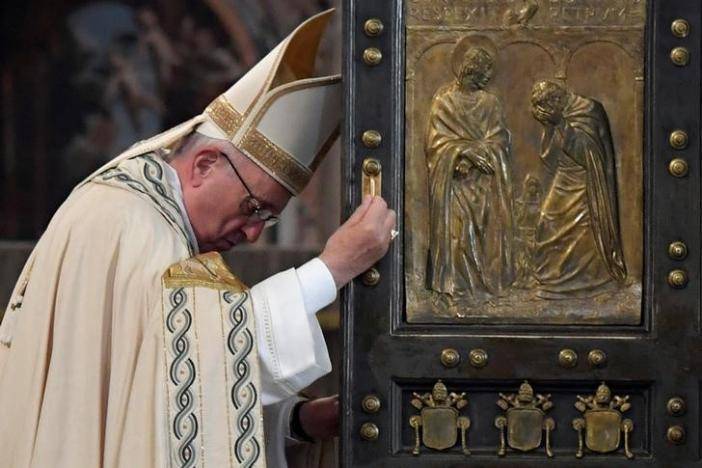VATICAN: Pope Francis on Sunday closed the Roman Catholic Church's "Holy Year of Mercy," a period that inspired hope among many followers but was also marred by conflicts around the world and infighting within the Church itself.
At a solemn ceremony in St. Peter's Basilica, Francis closed its "Holy Door," through which the Vatican says some 20 million pilgrims walked since it was opened on Dec. 8, to seek special blessings and symbolically pass from sin to grace.
Holy Years normally take place every 25 years unless a pope decrees an extraordinary one - such as the one that closed on Sunday - to bring attention to a particular need or topic.
The next one was to be held in 2025 but the 79-year-old Francis, concerned about growing divisions and conflict in the world and polarization among Catholics, called a special one on the theme of mercy, a major part of his push for a less judgmental and more inclusive Church.
Catholics around the world were asked to forgive each other and the pope made numerous appeals to world leaders to make gestures of peace and reconciliation.
In his homily at a Mass before 70,000 people in St. Peter's Square, celebrated together with 17 new cardinals installed on Saturday, he called for the spirit of hope and mercy to continue.
"Let us ask for the grace of never closing the doors of reconciliation and pardon, but rather of knowing how to go beyond evil and differences, opening every possible pathway of hope," he said.
During the year, both Cuba and Paraguay responded to papal appeals by granting amnesties to prisoners and the pope held a historic meeting of reconciliation with the head of the Russian Orthodox Church after a rift of nearly 1,000 years..
But his many appeals for ceasefires in Syria and peace in places such as Ukraine during the year achieved little result.
Division also reared its head within his 1.2 billion member Church.
Last week, four conservative cardinals made a rare public challenge to Francis over some of his teachings in a major document on the family, accusing him of sowing confusion on important moral issues.
In Rome, the year was a disappointment to hoteliers, who had hoped for a boom similar to one during the last Holy Year in 2000.
A majority of the pilgrims who came to the capital were Italian day-trippers and many who stayed overnight did so in low-cost residences, many run by the Church, or in private homes.
Ordinary Romans were also critical of their civic leaders because most of the projects slated to improve public transportation, repair pot-holed streets and upgrade infrastructures for the Holy Year were never begun or left incomplete.






